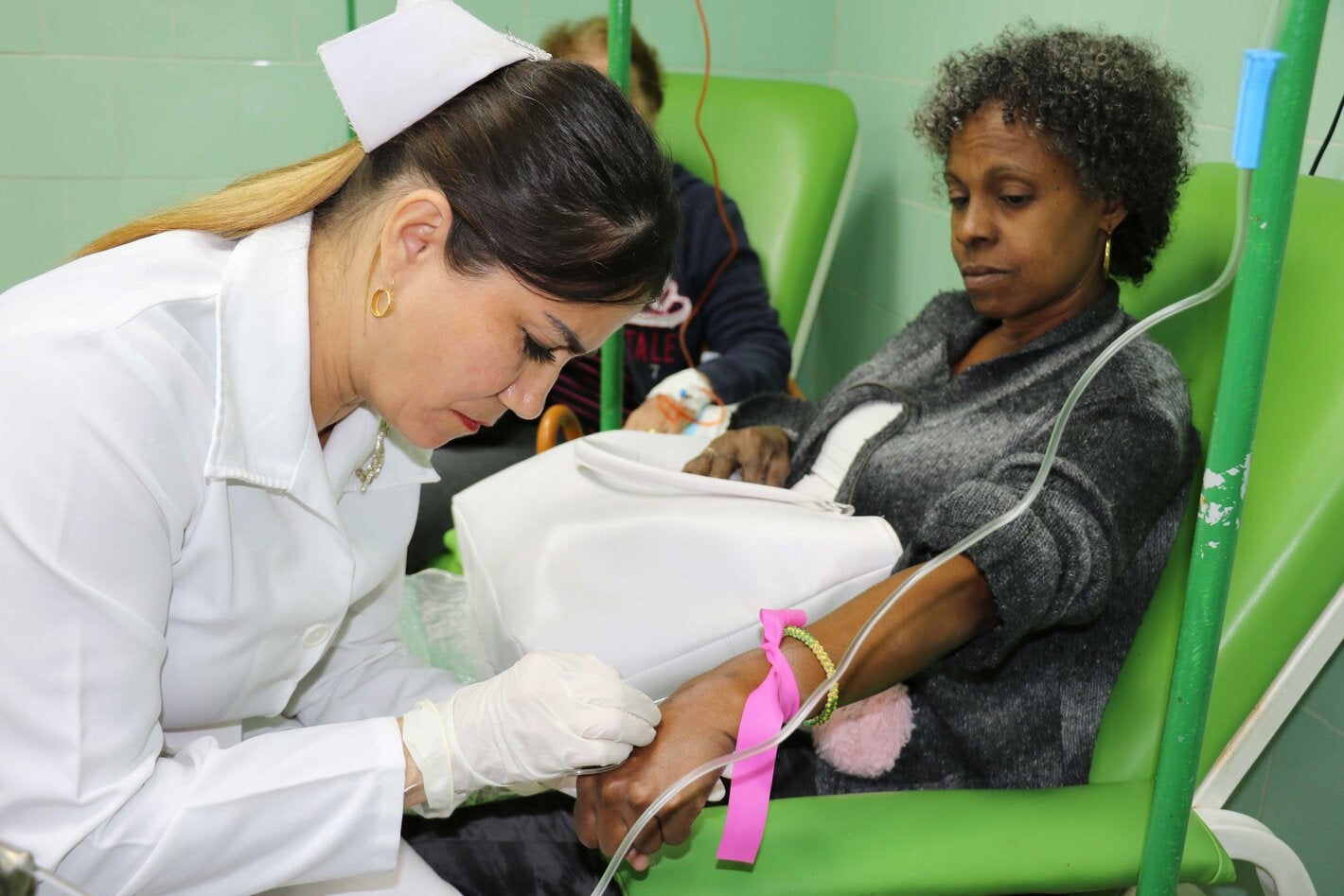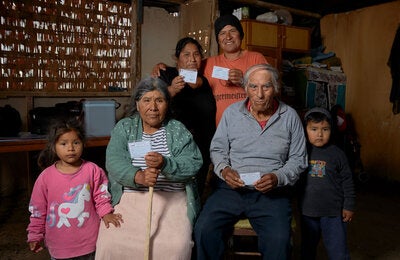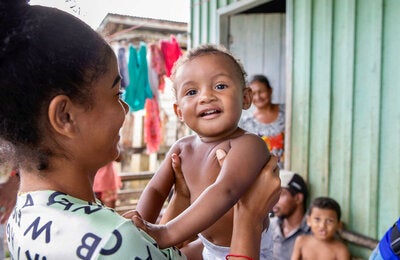
Countries in the Americas should ensure continuity of donations and safety for donors
Washington, DC, April 10 2020 (PAHO/WHO) - The Pan American Health Organization (PAHO) today warned that countries in the Americas face potential shortages of blood for transfusions due to a significant reduction in voluntary blood donations during this time of the COVID-19 pandemic.
According to the latest available data, in 2017 more than 10.5 million units of blood were collected, through 1,800 blood donation centers in 37 countries and territories of the Americas. Given the current pandemic, health services are now running the risk of shortages in availability.
“We are concerned that blood bank reserves are being depleted, as this puts at risk the lives of many people who need transfusions,” said PAHO Director Carissa F. Etienne. People with cancer and leukemia, people needing transplant services, and women who suffer postpartum hemorrhage are among those who arrive at hospitals every day requiring transfusions. In addition, emergency services require continuous availability of blood to respond to trauma cases arising from road traffic accidents and other injuries.
Dr. Etienne called on governments to maintain adequate blood supplies even as they work to reduce the spread of COVID-19. This means ensuring that voluntary blood donors can continue to safely donate blood, platelets and plasma. “The need for blood is becoming critical,” said Dr. Etienne. “Health services must coordinate with donors to make appointments for blood donation, either within a health facility, or through mobile collection systems and health services.”
The risk of transmission of the new coronavirus through transfusion of blood and components is likely minimal. Respiratory viruses have never been reported to be transmitted through blood or blood components, and to date there have been no reports of COVID-19 infection in blood recipients.
“Stopping donations is not an acceptable action at this time. We must find ways to ensure that blood donations continue uninterrupted and are safe for both the donor and the recipient,” said Dr. Etienne.
She called on hospitals and blood banks to take precautionary measures to minimize any risk and prevent COVID-19 infection. This includes maintaining physical distancing and implementing adequate biosecurity practices to protect their personnel and donors.
Dr. Etienne urged countries to implement appointment systems, extend donor hours, use mobile collection systems, monitor emergency blood supplies, and reschedule elective surgeries.
She also called for ensuring the availability of critical supplies for blood collection, including personal protective equipment for health personnel, and urged health officials to inform the public about who can donate in the context of the pandemic and what measures they should take to ensure safe donation.
Who can donate blood during COVID-19?
- Healthy people who have no flu-like symptoms and who have not had contact with a confirmed case of COVID-19.
- People who have been sick, traveled or had contact with a COVID-19 case may donate one month after travel, contact or full recovery.



